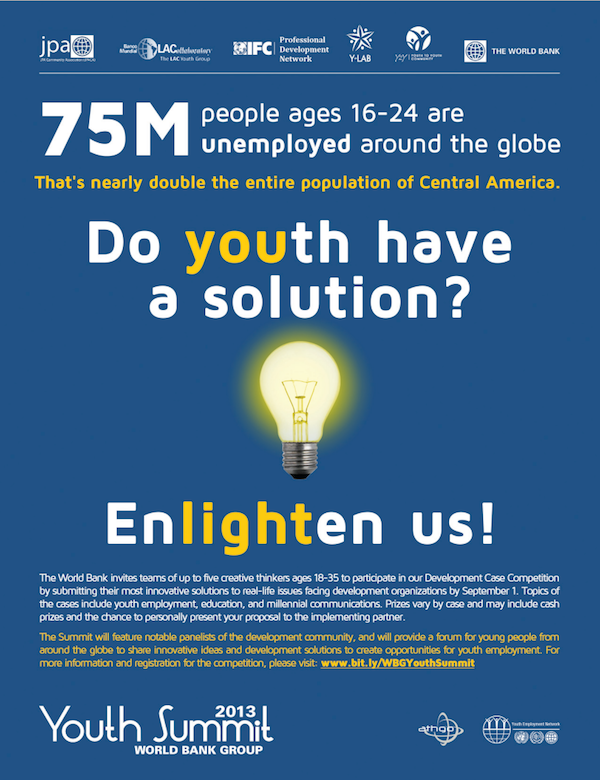Weekly Roundup – 8/17/13: Why the Top of the Pyramid might just want to pay attention to the base
Christine Driscoll Goulay, the associate director of the INSEAD Social Entrepreneurship Initiative, has a wake up call for luxury brands: Your customers may not be following you. She writes:
“Nine out of 10 global consumers say they want companies to go beyond the minimum standards required by law to operate responsibly and address social and environmental issues, according to the 2013 Cone Communications/Echo Global CSR Study. Eighty-seven percent of global consumers surveyed said they would consider boycotting companies that engage in irresponsible behavior.”
The study followed the refusal of more than a dozen high-end goods’ companies to respond to a questionnaire from the Ethical Consumer Research Association in 2011, which sought to quiz these coveted brands on their social and environmental sustainability practices.

Goulay notes that many of these companies already are playing catch-up, and will need to jump ahead to CSR 3.0. She defines CSR 1.0 as largely defensive measures and basic compliance, and 2.0 as philanthropy efforts. CSR 3.0 is all about integrating BoP sourcing, production and employment into the core business itself. (I would argue business model integration isn’t really CSR at all, but that’s an issue for another day).
Goulay cites recent moves by Vivienne Westwood, Tiffany & Co., and Gucci to go beyond the style to the actual substance of responsible commerce.
“It’s about the realization that your brand’s future is inextricably linked with the future of the communities, the workers, the employees and the consumers with whom you interact.”
A Different Kind of Case Competition
While we’re very proud of the NextBillion Case Writing Competition, it’s not the only game in town. Unlike our competition, and many others, the World Bank’s development case competition has a novel spin on it.
The competition is looking for solutions, not from the older grizzled types like myself, but from those aged 18-35. It focuses on real-life scenarios in education, entrepreneurialism, youth employment and millennial communication. Teams of up to five people are invited to draft and submit innovative solutions to one of four cases. Those include:
-
Case Study A: Strengthening Micro-Entrepreneurship for Disadvantaged Youth (Download)
-
Case Study B: A Better Financial Product for Young Entrepreneurs’ Micro and Small Enterprises (Download)
-
Case Study C: Reverse Engineering, Youth Entrepreneurship Driving Education (Download)
-
Case Study D: Millennial Communications for Inclusive City Planning (Download)
 Case Study B is by the Youth Employment Network (YEN), a joint program of the International Labour Organization, the World Bank and the United Nations. It asks teams to design a better financial product for young entrepreneurs in Togo. (For some upstart business people, this is your invitation to, as they say, go sick.) The team with the best solution for the YEN case will win $5,000, with $3,000 for the runner up. The winners also will have a chance to try out their financial product in Togo early next year.
Case Study B is by the Youth Employment Network (YEN), a joint program of the International Labour Organization, the World Bank and the United Nations. It asks teams to design a better financial product for young entrepreneurs in Togo. (For some upstart business people, this is your invitation to, as they say, go sick.) The team with the best solution for the YEN case will win $5,000, with $3,000 for the runner up. The winners also will have a chance to try out their financial product in Togo early next year.
The winners and runners-up for each case study will be invited to the Youth Summit on October 3 to present their winning proposals, either in person or by video-conference. They’ll also get a chance to schmooze with World Bank President Jim Yong Kim, who will present the winning teams with certificates.
Teams replying to any of the four cases are required to submit a proposal of up to 2,000 words, in English, that provides solutions to the development case they chose to address. A proposal can touch on social impact measurements, market readiness and financial plans, among other attributes. Additionally, teams are required to include an executive summary of 400 words. The deadline for entries is September 8 – more details on contest requirements can be found here.
Still Time to Register for SOCAP
Don’t forget about your 30 percent SOCAP discount if you register through NextBillion.
In Case You Missed It … This Week on NextBillion
NexThought Monday – Time Out: Three Reasons why too many Philadelphia Eagles fans are bad for global development By Adam Lewis
How We May Change the Charitable Industrial Complex By Blair Miller
8 Defining Milestones in India’s Social Enterprise Landscape By Perzen Patel
The New Alchemists of Credit By Johnny Jirón — Inter-American Development Bank
Expanding the Scope of Health Care: A roundtable discussion on nutrition’s impact on health, featuring World Food Program Senior Nutrition Advisor Martin Bloem By Chandrima Chatterjee — Ashoka
A New Opportunity for Successful Green and Inclusive Businesses: The CHANGING Markets Award is seeking enterprising nominees By Anais Mangin
Making Financial Inclusion a Global Reality by 2020: Financial Inclusion 2020 invites nominations for the Global Forum, Oct. 28-30, 2013 By James Militzer — WDI
The Future of the BoP Domain: Where is our missing community? By Ted London
The Best of July 2013: NextBillion’s most-read, most-shared posts By Scott Anderson
News roundup: Don’t miss these news stories from the week
Working on Tibet’s Future, From India
Source: The New York Times
Gates Foundation Lures Biotech VC to Work on Global Health Startups
Source: Xconomy
A Stove That Cooks With Molten Salt
Source: Co.Exist
When Does Being Socially Responsible Hurt Your Business?
Source: Entrepreneur
Intellecap Impact And Unilazer Invest In Head Held High
Source: Deal Curry
Why we’re heading for a global healthcare crunch – and how to avoid it
Source: The Guardian
Swati Piramal: How to Make India a World Leader in Low-Cost Health Care
Source: Forbes India
Aavishkaar makes final close of second venture fund at $94M
Source: VCCircle
- Categories
- Uncategorized
